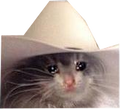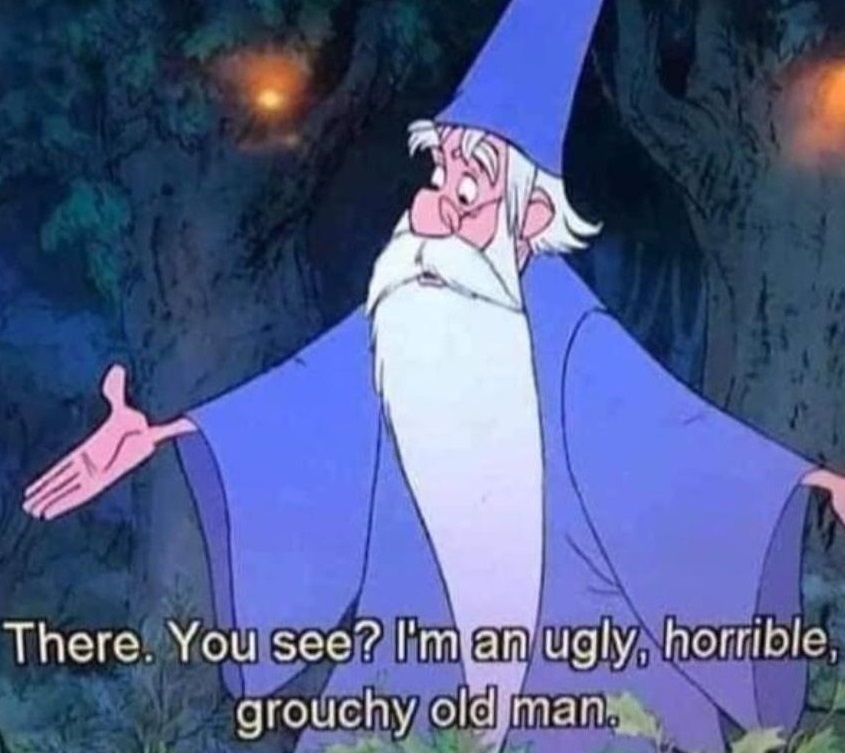Every time people lament changes to the lore that amount to "not every member of species X is irredeemably evil" and claim the game is removing villains from it, I think how villains of so-caleld evil species fall into two cathegories: a) bland and boring and b)have something else, unrelated to their species going on for them, that makes them interesting.
I'd argue Devils, by their nature of being lawful as well as evil, are often interesting villains because of their "species", but it's kinda different when it's a creature literally made from the primordial essence of Evil rather than just a bad dude.
I'd love to be literal devil's advocate here and argue devils just think different, in ways usually not immediately beneficial to in-universe society but ultimately a plus by instead providing a stress test for development of what is in universe considered 'good'. Insert the quote from Legend what is light without dark.
Understandable - I prefer lovecraftian and fey creatures for alien thought processes, and use devils more as a foil/mirror to the lawful god of cities, merchants, and wealth, whomst I hate and will take any opportunity to drag.
Always interpreted planar creatures as having an alien thought process in general. That is a good use of devils ngl, for related playing pallies/clerics with 'my higher power is the people' is quite fun.
I see Fey not as alien, but as capricious. They do what they please, when they please, damn the consequences.
They might commit arson against a local noble and then give that noble’s kid a super fancy cake; and not have a reason for either beyond “lol, lmao”
No, equating alignment and morality makes them both meaningless. Morality should be tied to outlooks/philosophies etc, a personal matter of how the individual acts in a situation, while alignment with the forces of good/evil/law/chaos should be a matter of absolute determinism. It's easy to look at D&D and say it's wrong, but just because something's bad in D&D doesn't mean the idea itself is bad.
I have it to where the good/evil extraplanar creatures are created as expressions of the good and evil within everything sentient.
Yes, exactly - as I put it to my players, a "person" isn't able to be inherently good or evil. They'll have their own morals - particular things they always will or won't do - but alignment is for things literally made of the concept of that alignment.
Not all are made from one guy though. Some are just pulped evil in a can. Even with different outlooks on life there are still things that everyone would hate. Like "very specific crimes" to an infant. I say that's enough for pure evil
Evil races give someone the PCs don't have to feel bad about killing. Obviously depends on your party, but if they befriend the hungry wolf pack and negotiate with the bandits, then a band of definitely evil goblins gives the barbarian something to smash without worrying if they're killing little Timmy's dad.
Edited to add: And if "he's an evil race" is your only reason for them being a major villain, that's bad storytelling. About as bad as "yes they're going to help you because they're good," and not for some kind of benefit to them, monetary or spiritual or whatever.
Your players care about race when murdering people. If you want to murder people then just do it.
Also that's what we have Nazi metaphor's for
I feel like:
- No race should have alignment locking in any direction, because people are people and can do whatever they want. Our goodness or badness isn't determined by our genes.
- But, people are who they are because of the society they grow up in and how people treat them. If humans treat goblins like shit because they're goblins, and a goblin turns into a big bad because they want to kill the humans that slaughtered their village, then that villain is interesting for reasons tied to their species.
"No villain in D&D is interesting for reasons tied to their species" sounds very dangerously close to "I'm race-blind" in terms of not acknowledging that different people have different struggles, and racism is often a huge part of those struggles.
If you like this idea, you should read the webcomic The Order of the Stick. It's surprisingly good for a comic that started out as DND jokes and stick figures. It deals a lot with the problem of evil in DND.
If humans treat goblins like shit because they're goblins, and a goblin turns into a big bad because they want to kill the humans that slaughtered their village, then critical support to that goblin
I think the one you're replying was making the point that you could just swap out "goblins" in that claim with "humans with slightly different features."
Interestingly though it does make for compelling heroes like Drizzt and Wulfgar.
Because it was a strong character trait, first! So much so, that many people started using it!
Any story pitching “good” vs “evil” is bedtime drivel dressed a different way.
Personally, as a DM I get tired of how many different intelligent species there are. It makes worldbuilding very hard. I tried carving out space for each of them, but it wasn't worth it. These days I prefer to just get rid of most races, but it's a bit hard to tell which ones to keep.
I tried to run a goblin sympathy campaign and they just did genocide so
Mindflayers are definitly evil (from humanoid perstective) because of their species. They eat and bread brains. And they are interesting.
Deekin is a great example of how an evil species (Lawful Evil Kobold) can make a great narrative.





